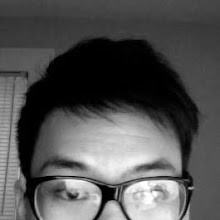Sunday marked the 10th “Anniversary” of September 11, a whole decade since the World Trade Center Towers went crashing down in 2001. I come from a perspective that may differ from some people. To my generation, September 11 was the first tragedy of the United States to have burned before our eyes. I remember that morning, as many probably do, sitting in my first period, US History class – it was my first year in high school. Before I came to school that morning, I hadn’t even heard of what had happened. Walking into class, everyone was just sitting there, watching the news constantly replay images of debris falling and dust rising – with only snippets of planes crashing here and there, like they were concerned for the nation’s sensitivity. Throughout the whole school day, teachers kept the TV on with the news playing. Although there were some teachers who were resistant, and wanting to continue with their lessons, you could still sense the clouds above their heads. Despite the silent chaos running through everyone’s minds that day, I came home from school not really feeling anything different. I wasn’t sad. I wasn’t scared. Hell, I wasn’t even shocked. Honestly, I just didn’t know what to think of it.
There was a lot of talk, worry, and tension in my school that centered around one of the students who was Arab American. She wasn’t a close friend of mine, but she was still within my same circle of friends. Before September 11, I had been pretty unaware of her race and ethnicity. Back then, I actually didn’t think too much about people’s race and ethnicity besides my own, which stemmed from my own personal battles growing up with racism as a Chinese American living in a predominantly White neighborhood. Anyway, She was a pretty normal girl in my book. Her dad even owned a limousine business – the same one we rented a limo from for junior prom. A little after September 11, I remember she came to school very upset and utterly terrified. She told us these officers came knocking on her door to question her dad about any involvement he had with the events that recently transpired. Of course, he had no involvement.
It wasn’t until college I fully understood the implications of September 11 regarding politics and civil rights, particularly for the South Asian, Arab, Middle Eastern, and Muslim American communities. Despite the lives that were lost on September 11, the attack stirred up a larger tragedy. The seed of America’s Islamophobia was planted that day, growing right into our rich history of racism and xenophobia that we still experience. When September 11 happened, many Japanese Americans came to the defense of Muslim Americans who were quickly becoming the latest target for racial profiling (which is nothing really new for any ethnic minority) and hate crimes. As a people who were condemned to internment camps by their own nation because of the fear spread by the Japanese government’s attack on Pearl Harbor, Japanese Americans understood that what was happening to Muslim Americans, was not right. There are many things that are done in this country with an underlying racism, and are simply unjust to human and civil rights.
It is always said that we are bound to repeat our failures if we do not learn about our mistakes in history. However, I encourage people to not just remember the tragedies of our history, but to speak and act in order to move beyond them. I quote Dr. Martin Luther King, Jr. in that “our lives begin to end the day we become silent about things that matter.”


